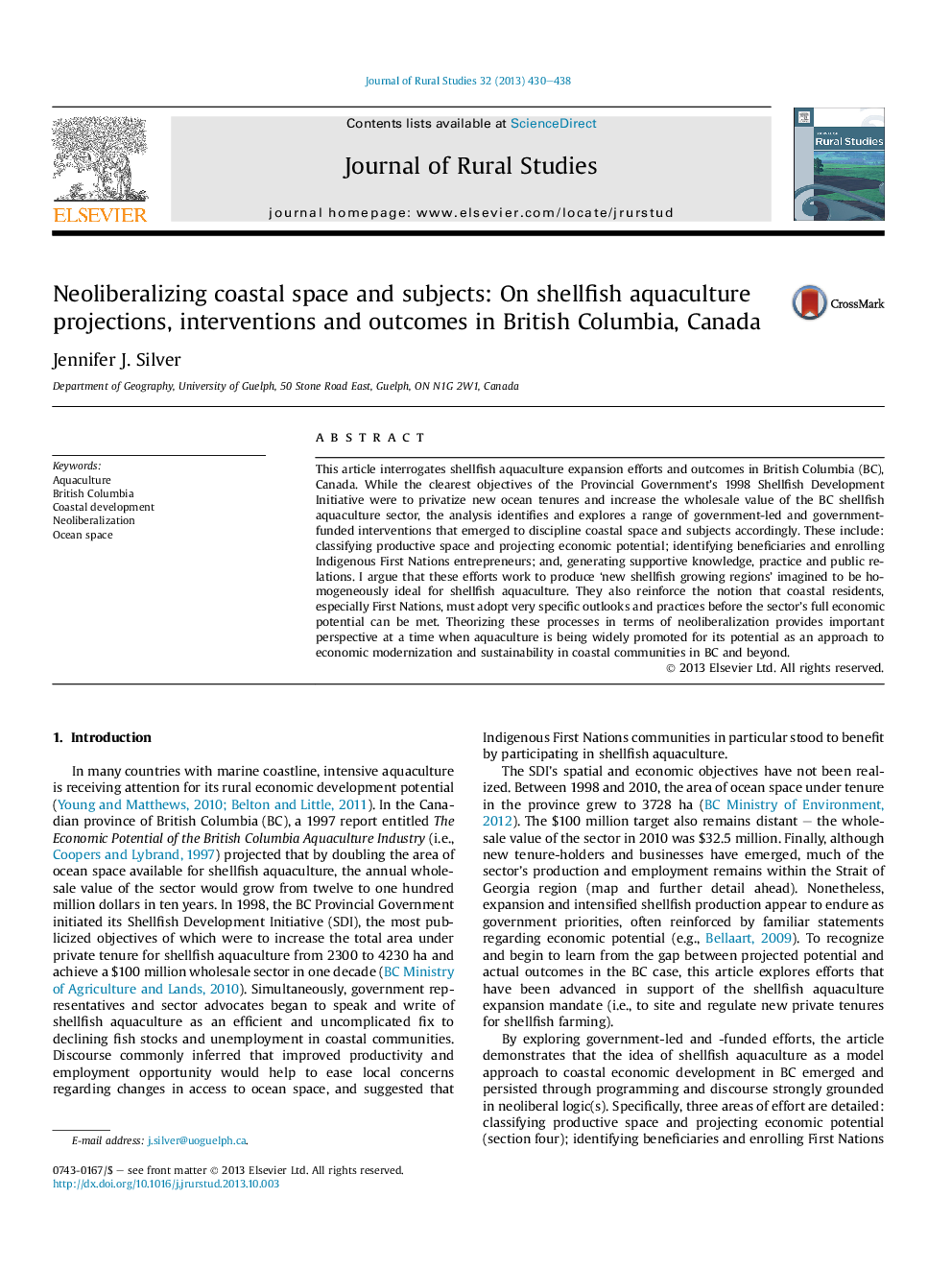| Article ID | Journal | Published Year | Pages | File Type |
|---|---|---|---|---|
| 6545954 | Journal of Rural Studies | 2013 | 9 Pages |
Abstract
This article interrogates shellfish aquaculture expansion efforts and outcomes in British Columbia (BC), Canada. While the clearest objectives of the Provincial Government's 1998 Shellfish Development Initiative were to privatize new ocean tenures and increase the wholesale value of the BC shellfish aquaculture sector, the analysis identifies and explores a range of government-led and government-funded interventions that emerged to discipline coastal space and subjects accordingly. These include: classifying productive space and projecting economic potential; identifying beneficiaries and enrolling Indigenous First Nations entrepreneurs; and, generating supportive knowledge, practice and public relations. I argue that these efforts work to produce 'new shellfish growing regions' imagined to be homogeneously ideal for shellfish aquaculture. They also reinforce the notion that coastal residents, especially First Nations, must adopt very specific outlooks and practices before the sector's full economic potential can be met. Theorizing these processes in terms of neoliberalization provides important perspective at a time when aquaculture is being widely promoted for its potential as an approach to economic modernization and sustainability in coastal communities in BC and beyond.
Related Topics
Life Sciences
Agricultural and Biological Sciences
Forestry
Authors
Jennifer J. Silver,
